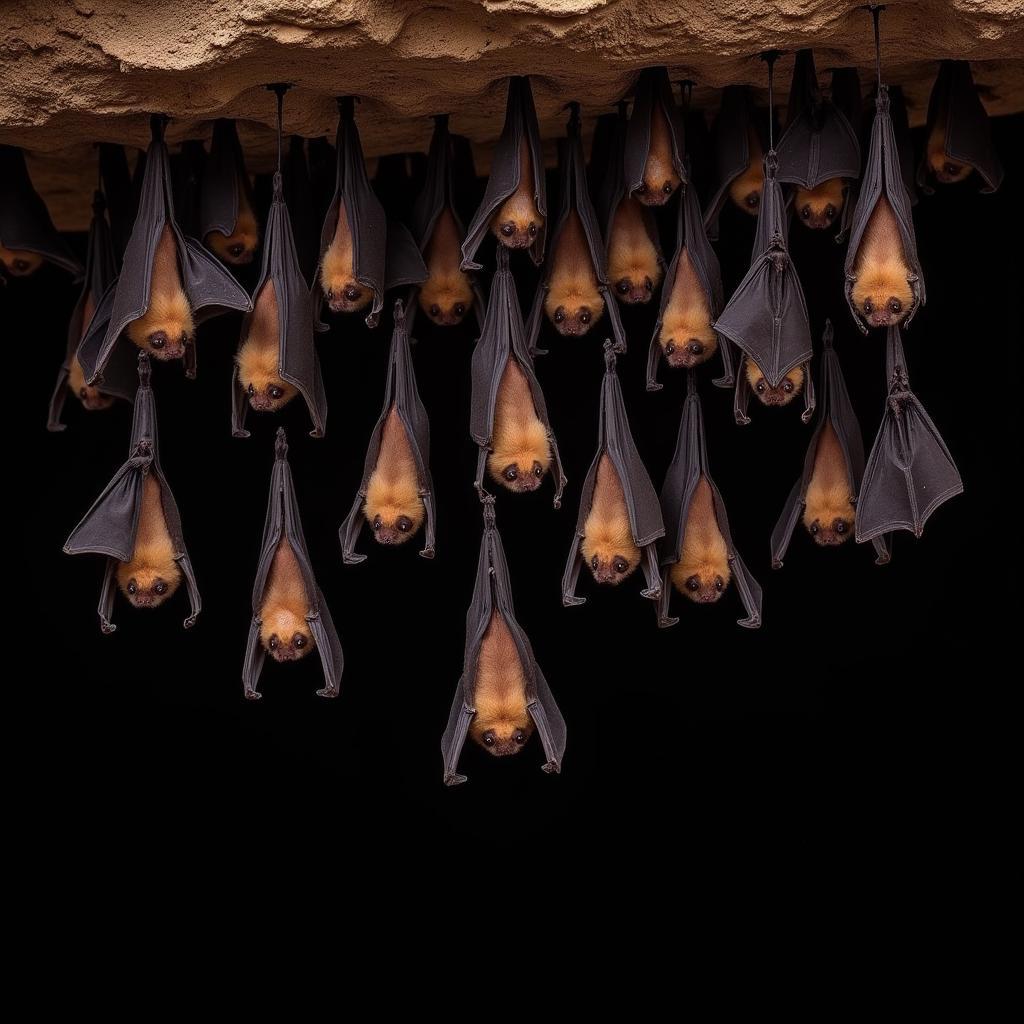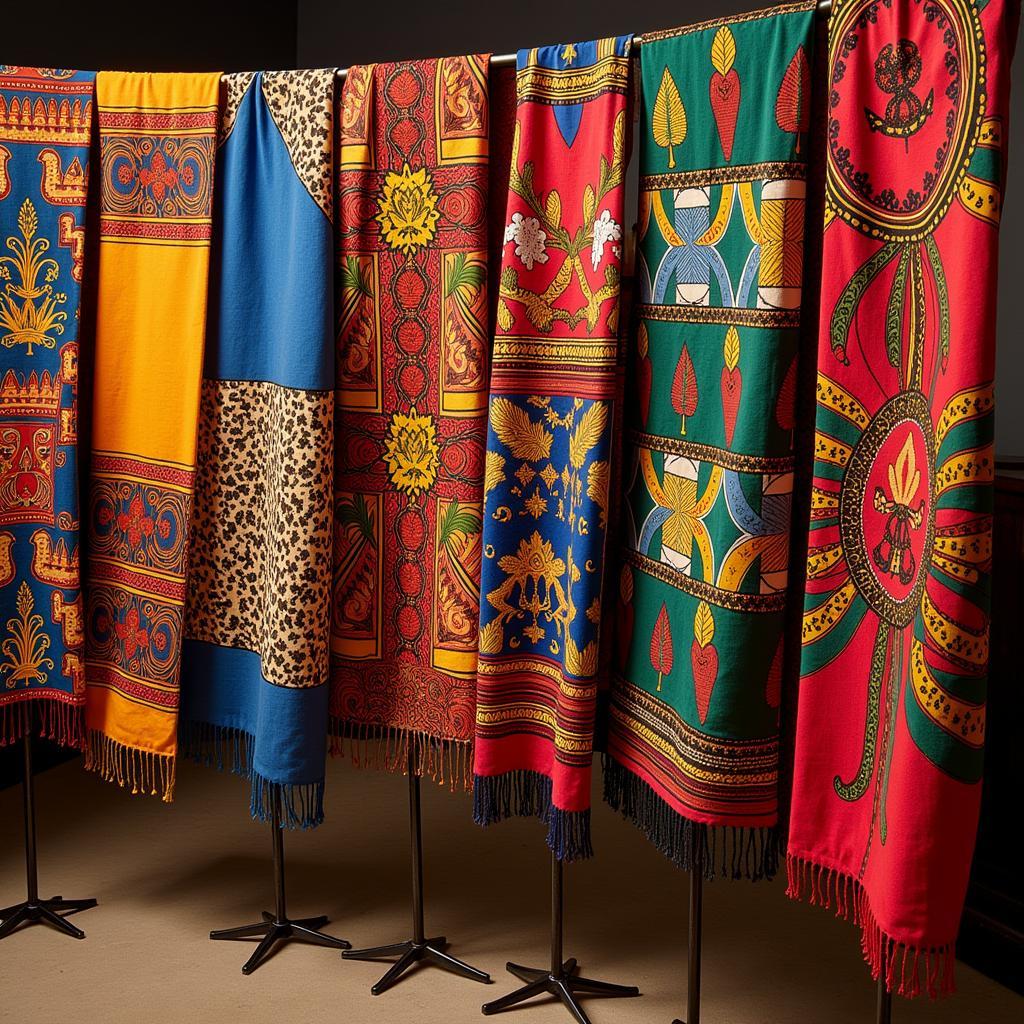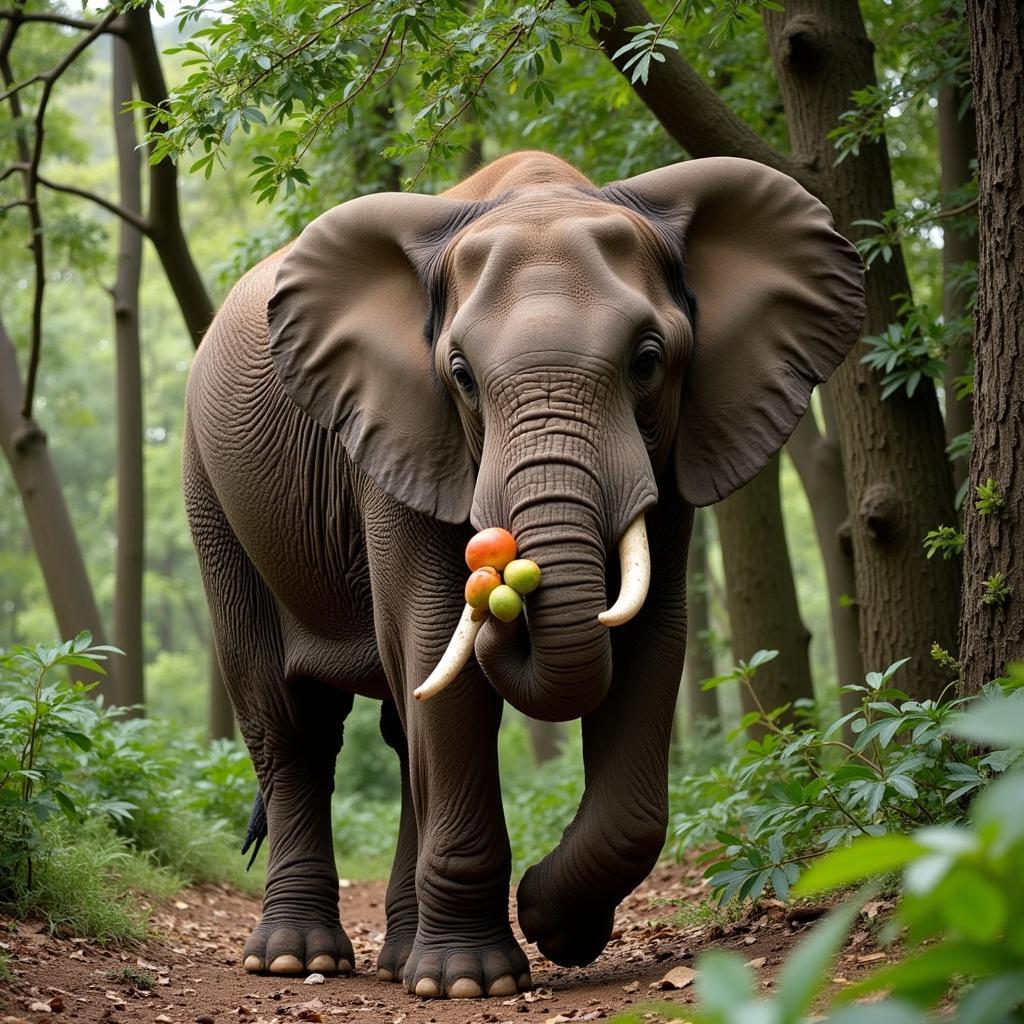Unveiling the Mysteries of the African Bat
African Bats, often shrouded in myth and misunderstanding, play a vital role in the diverse ecosystems of the African continent. These fascinating creatures, far from being creatures of darkness, contribute significantly to pollination, seed dispersal, and insect control. Let’s delve into the world of these remarkable mammals and uncover the truth behind their often-misunderstood existence. african batik
Exploring the Diversity of African Bat Species
Africa is home to a remarkable array of bat species, each with unique characteristics and ecological roles. From the massive Egyptian fruit bat with its impressive wingspan to the tiny, insectivorous slit-faced bat, the diversity is astounding. These diverse species occupy a wide range of habitats, from dense rainforests to arid savannas.
The Importance of Bats in African Ecosystems
African bats play a crucial role in maintaining the health and balance of their ecosystems. Many species are important pollinators, ensuring the reproduction of numerous plant species, including those of economic importance. Others are voracious insect eaters, consuming vast quantities of mosquitos and other pests, which helps control disease vectors and protect crops. Furthermore, fruit bats contribute to seed dispersal, facilitating forest regeneration and plant diversity.
- Pollination: Bats are essential pollinators for many African plants, including baobab trees and various fruit trees.
- Insect Control: Insectivorous bats help regulate insect populations, reducing the need for pesticides.
- Seed Dispersal: Fruit bats play a key role in dispersing seeds, aiding in forest regeneration.
Myths and Misconceptions Surrounding African Bats
Bats are often associated with negative connotations, fueled by myths and folklore. They are sometimes portrayed as harbingers of disease or symbols of evil. However, these perceptions are far from the truth. In many African cultures, bats are seen as symbols of good luck, fertility, and even rebirth. Understanding the true nature of these creatures is crucial to dispelling these misconceptions and promoting their conservation.
- Disease Carriers: While some bat species can carry diseases, the vast majority pose no threat to humans.
- Symbols of Evil: Contrary to popular belief, bats are often viewed positively in many African cultures.
- Blindness: Bats are not blind; they have excellent eyesight and also use echolocation to navigate.
Conservation Challenges Facing African Bats
African bat populations face numerous threats, including habitat loss, climate change, and human persecution. Deforestation, driven by agriculture and logging, destroys vital roosting sites and foraging areas. Climate change alters rainfall patterns and temperature regimes, impacting bat populations and their food sources. Furthermore, some communities hunt bats for food or due to unfounded fears, adding further pressure on these vulnerable creatures.
“The conservation of African bats is crucial not only for the survival of these fascinating creatures but also for the health and well-being of the ecosystems they inhabit,” says Dr. Fatima Mohamoud, a leading bat researcher based in Kenya.
How Can We Help Protect African Bats?
Protecting African bats requires a multi-faceted approach, including habitat conservation, public education, and research. Supporting sustainable forestry practices and reducing deforestation is essential to preserving bat habitats. Educating communities about the ecological importance of bats can help dispel myths and promote their conservation. Further research is needed to understand the specific threats facing different bat species and develop effective conservation strategies.
 African Bat Roosting in a Cave
African Bat Roosting in a Cave
“Raising awareness about the vital roles bats play in our ecosystems is the first step towards ensuring their long-term survival,” adds Dr. Mohamoud.
Conclusion: Appreciating the African Bat
African bats are fascinating and vital components of the continent’s diverse ecosystems. By understanding their ecological importance, dispelling myths, and supporting conservation efforts, we can help ensure the survival of these remarkable creatures for generations to come. Learn more about the unique role of the African bat and contribute to their preservation. african batik dot
FAQ
- What do African bats eat? (Answer: African bats have diverse diets, with some species eating insects, others consuming fruit, nectar, or even small vertebrates.)
- Are all African bats nocturnal? (Answer: Most African bats are nocturnal, but some species are active during the day.)
- How long do African bats live? (Answer: The lifespan of African bats varies depending on the species, with some living for several decades.)
- What are the biggest threats to African bats? (Answer: Habitat loss, climate change, and human persecution are the major threats to African bat populations.)
- How can I help protect African bats? (Answer: Supporting conservation organizations, reducing your environmental footprint, and educating others about the importance of bats are all ways to help protect these creatures.)
For further support, contact us at +255768904061, email kaka.mag@gmail.com, or visit us in Mbarali DC Mawindi, Kangaga, Tanzania. Our customer service team is available 24/7.



